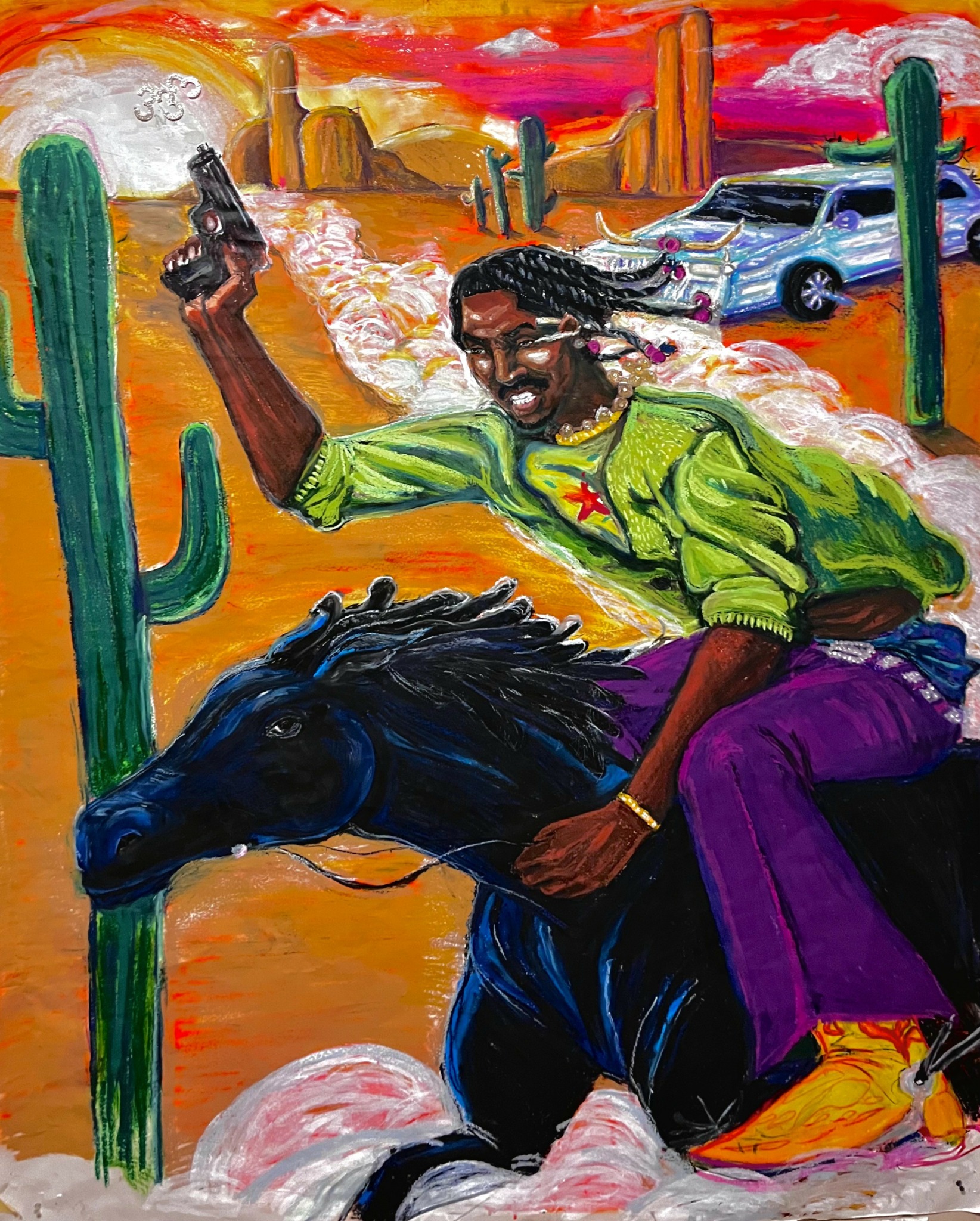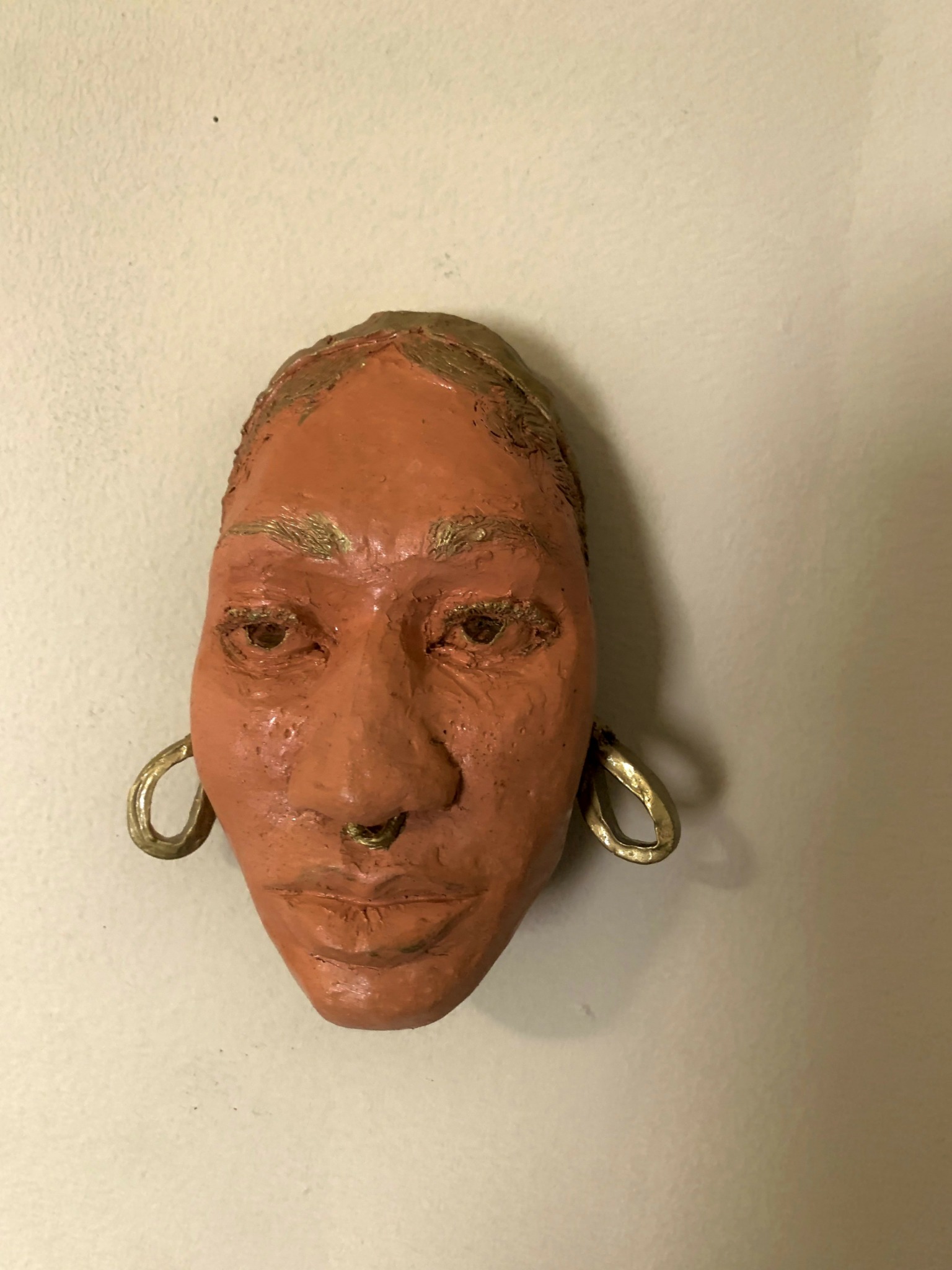We were lucky to catch up with Tyler Jones recently and have shared our conversation below.
Alright, Tyler thanks for taking the time to share your stories and insights with us today. Learning the craft is often a unique journey from every creative – we’d love to hear about your journey and if knowing what you know now, you would have done anything differently to speed up the learning process.
I learned early that if I were to take my art seriously, I would have to treat my skills like a muscle. Working religiously to make sure my body was in tune with my mind and what I wish to convey based off of my research. I also had to learn how I would be perceived as a black man in a predominantly white field. I would purposefully work towards getting under the skin of those perspectives forcing people to ask questions to themselves and others pertaining to why I make the images that I do. I want for people to question why certain biases are kept when viewing black features and culture, Giving myself a purpose within my field made it all the more easier to commit towards my mission of introspection and education.
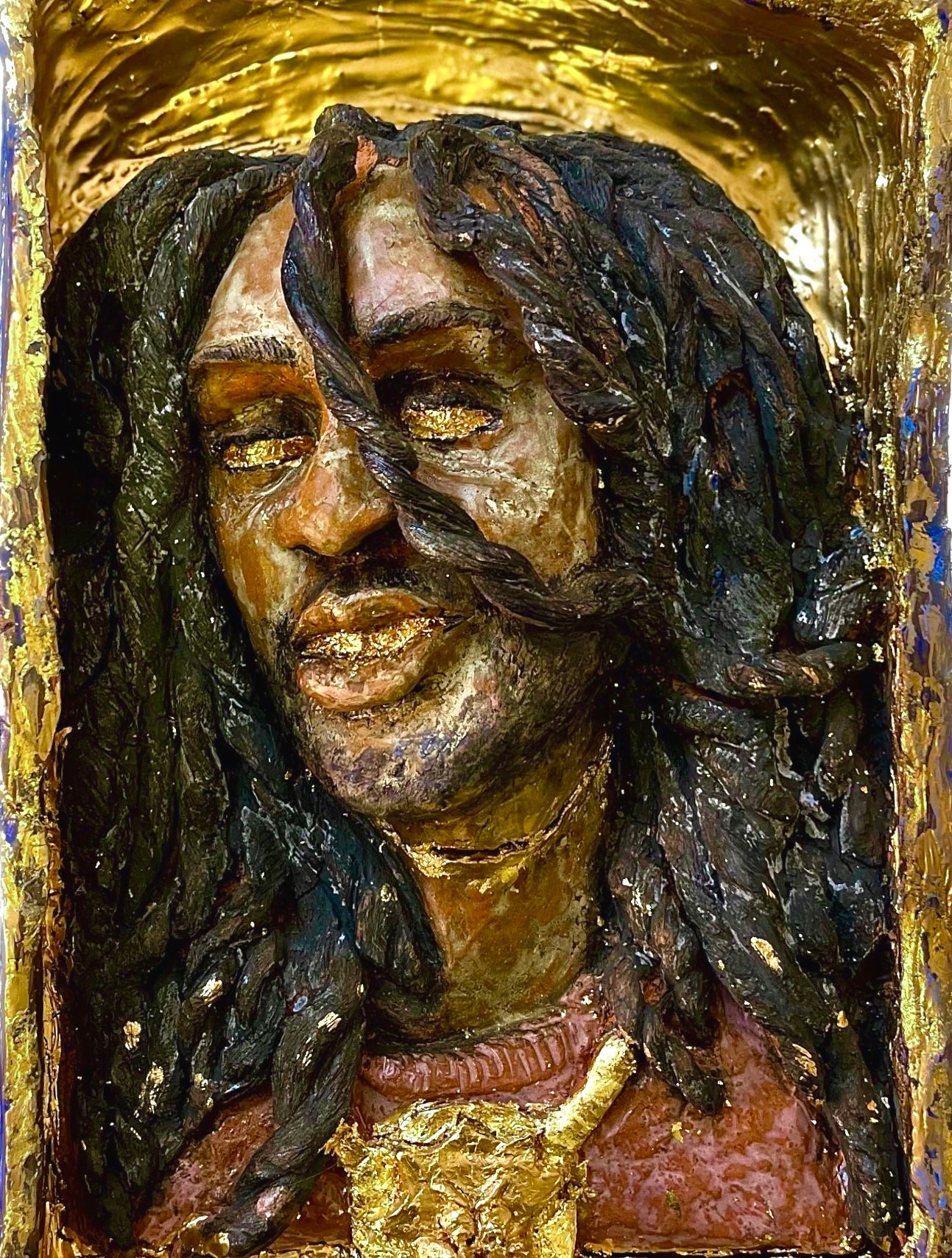
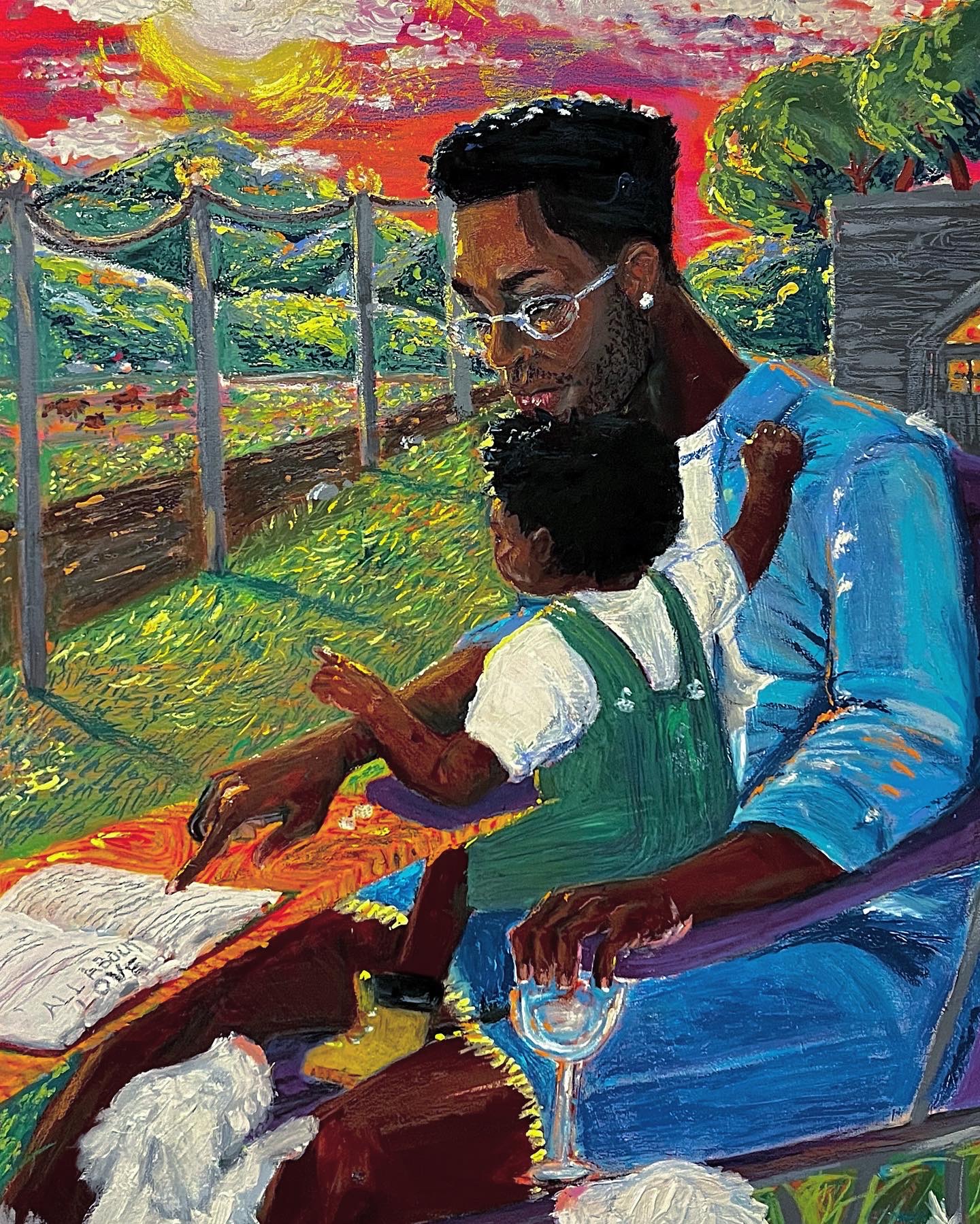
Great, appreciate you sharing that with us. Before we ask you to share more of your insights, can you take a moment to introduce yourself and how you got to where you are today to our readers.
I got my start in homeschool very young learning historical concepts under my mother, Shenette Swann. Her teachings lit a flame of passion within me for history, influencing how I would analyze my life’s surroundings from there on. I would also spend a lot of time tracing and drawing figures in my middle and high school days. By the time I went to college in 2019, I finally began to understand how I can combine these two loves of mine. In 2019, I learned a plethora of topics regarding how people of vast cultures had been depicted within media for hundreds of years and I knew that I could bring change to those narratives through my work. Due to the covid pandemic happening the next year I had a lot of time between school and practicing my craft. I would begin sharing my work on social media and gain a decent following while building a solid artistic resume. After that I would start doing live art demonstrations and shows at local museums, even creating album concept artwork for musical artist all over the US. My pride and joy along my journey was giving my first and the first student artist talk at the Weatherspoon Art Museum, a renowned facility with very high valued artwork. As an art historian it is a dream of mine to be able to not only combine my passions but then bring the narratives I create to a place where I can educate and collaborate with the community.
I specialize in Ceramic hand-building and Oil Pastel portraits of African American Culture. My sculptures are meant to align thematically with pre-colonial African mask. The messaging within some of those pieces is too profound to simply be labeled as “primitive”, so I work to bring those concepts to America and filter them through my experiences and knowledge for American audiences to start a conversation regarding the narratives surrounding African based features and culture. My drawings aren’t purposefully meant to align with any previously made styles but I intend form them to have the same purpose of highlighting racial adversity throughout history and creating motifs on the beauty of African features and black cultures. I don’t carry this mission with me when doing commissions for patrons unless it’s something they specifically desire.
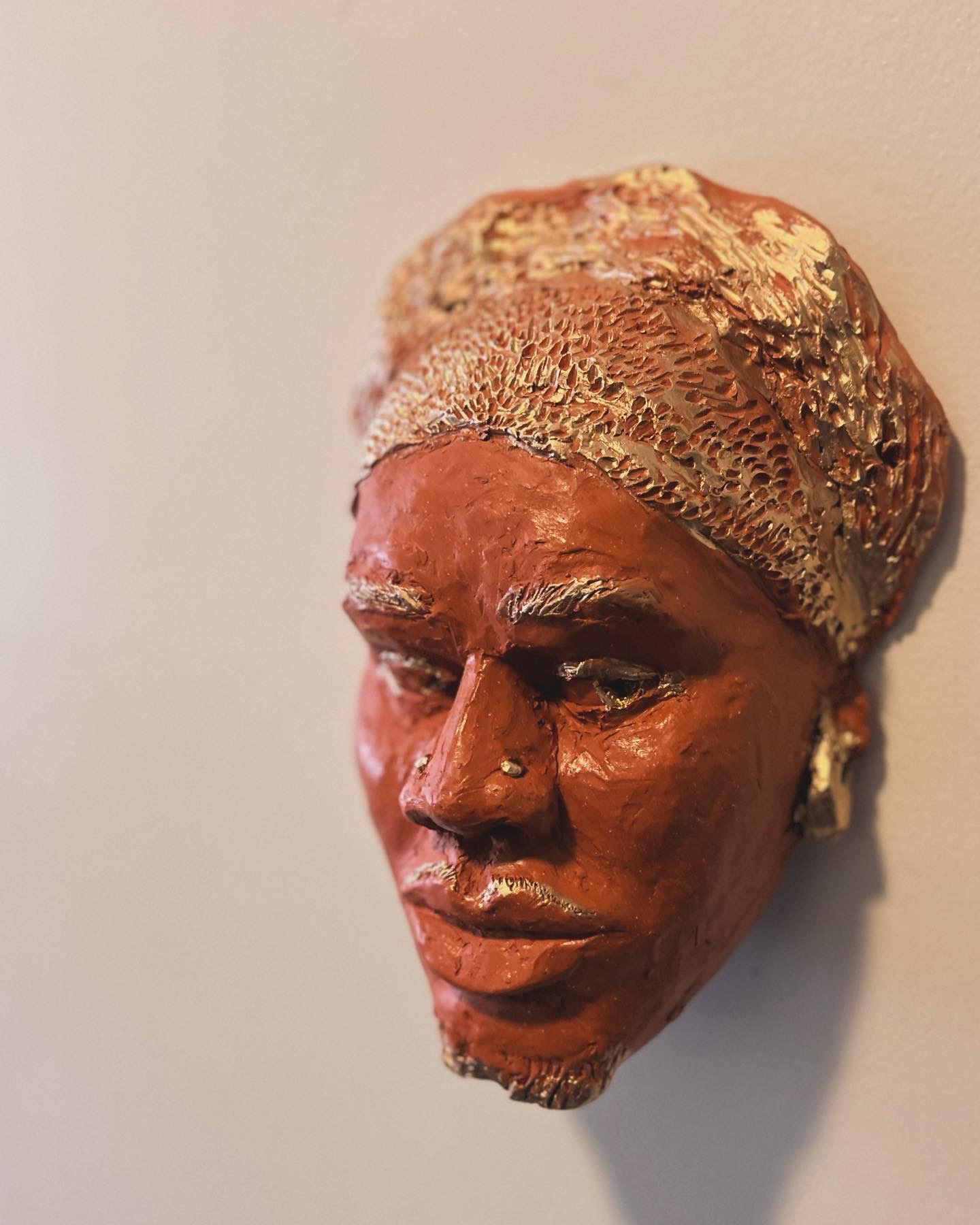
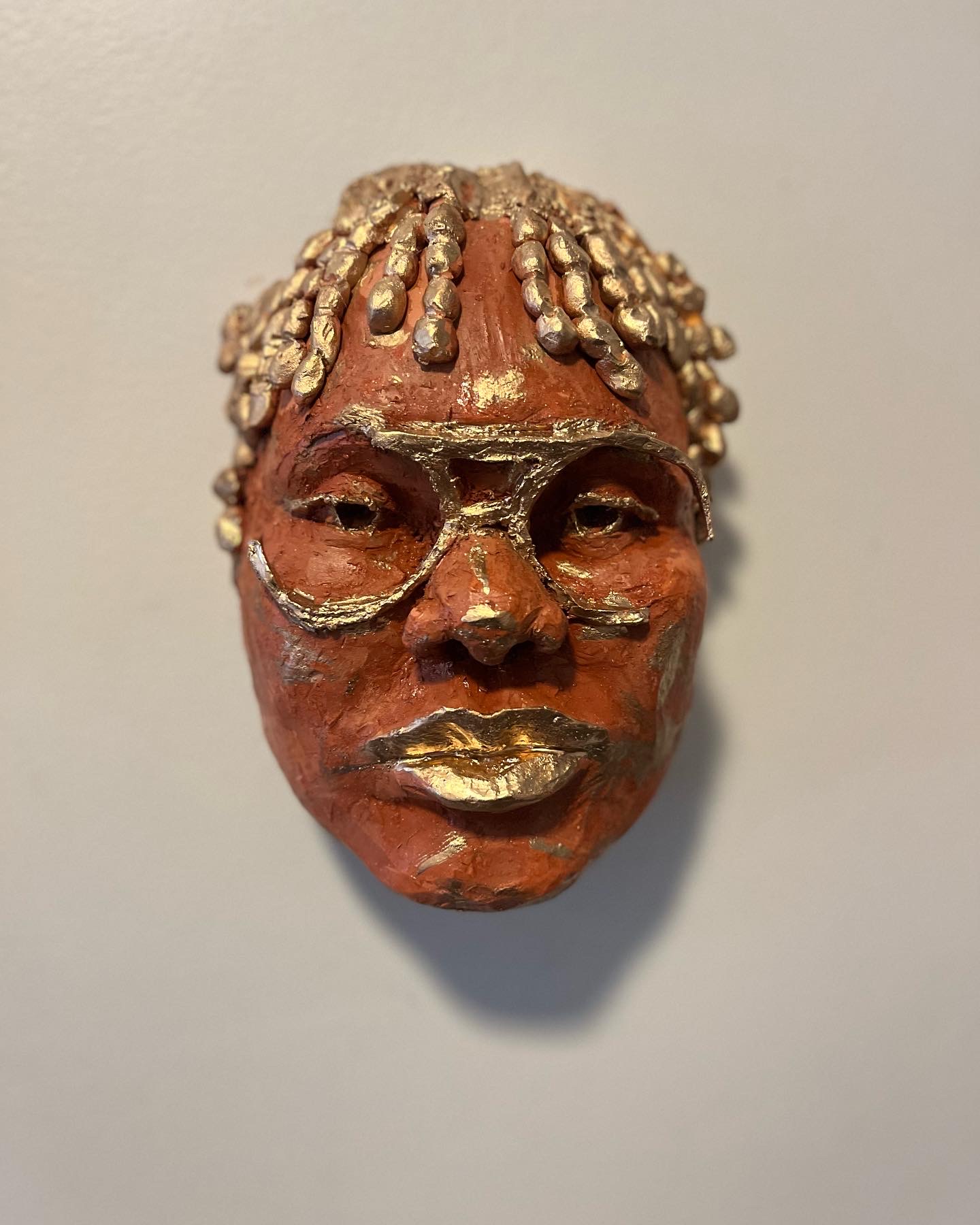
Can you share a story from your journey that illustrates your resilience?
In 2024, I had been racially profiled by a fellow student at my university. They had me arrested and nearly convicted of a crime I did not commit. This experience shook me to my core. My perspective on the situation at the time was that I was black and within police custody so all that I had worked for; my graduation from college, my art career, my ability to find work and so much more were gone. I had become a statistic. However, through the work I’ve done in the community I was able to amass a overwhelming and humbling amount of support from family, close friends and faces within the community to make a case towards my innocence. People who I had sold art to or done a show at their venue checked on me and made sure I was able to advocate for myself properly. I had my charges dropped and my record cleared, a year later I was able to attain not one but two occupations that relate to my passions as a Museum Educator and Art’s Instructor. Within this economy thats about as much anyone fresh from college could ask for. It made me realize how reachable my dreams are through resilience and not giving up.
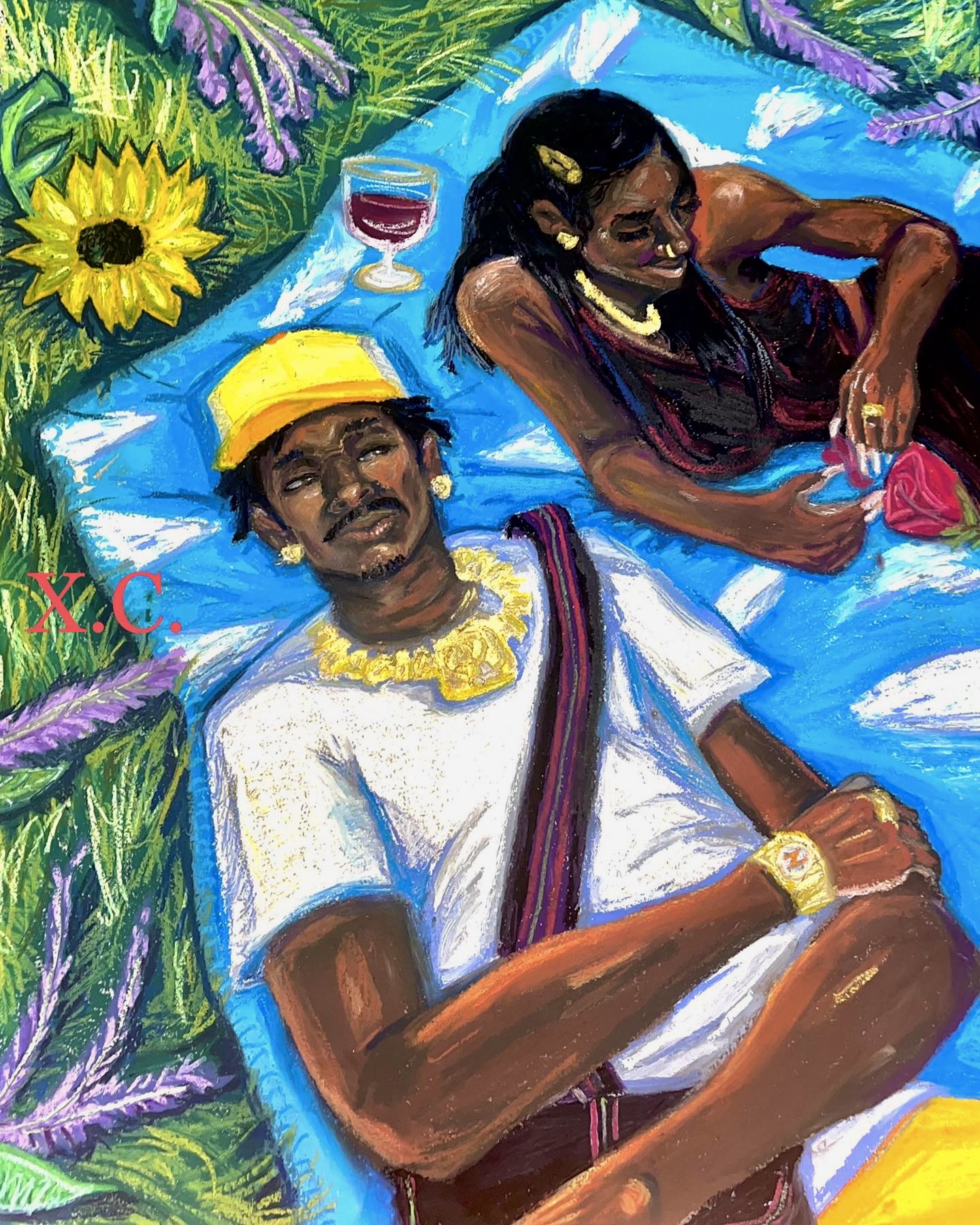
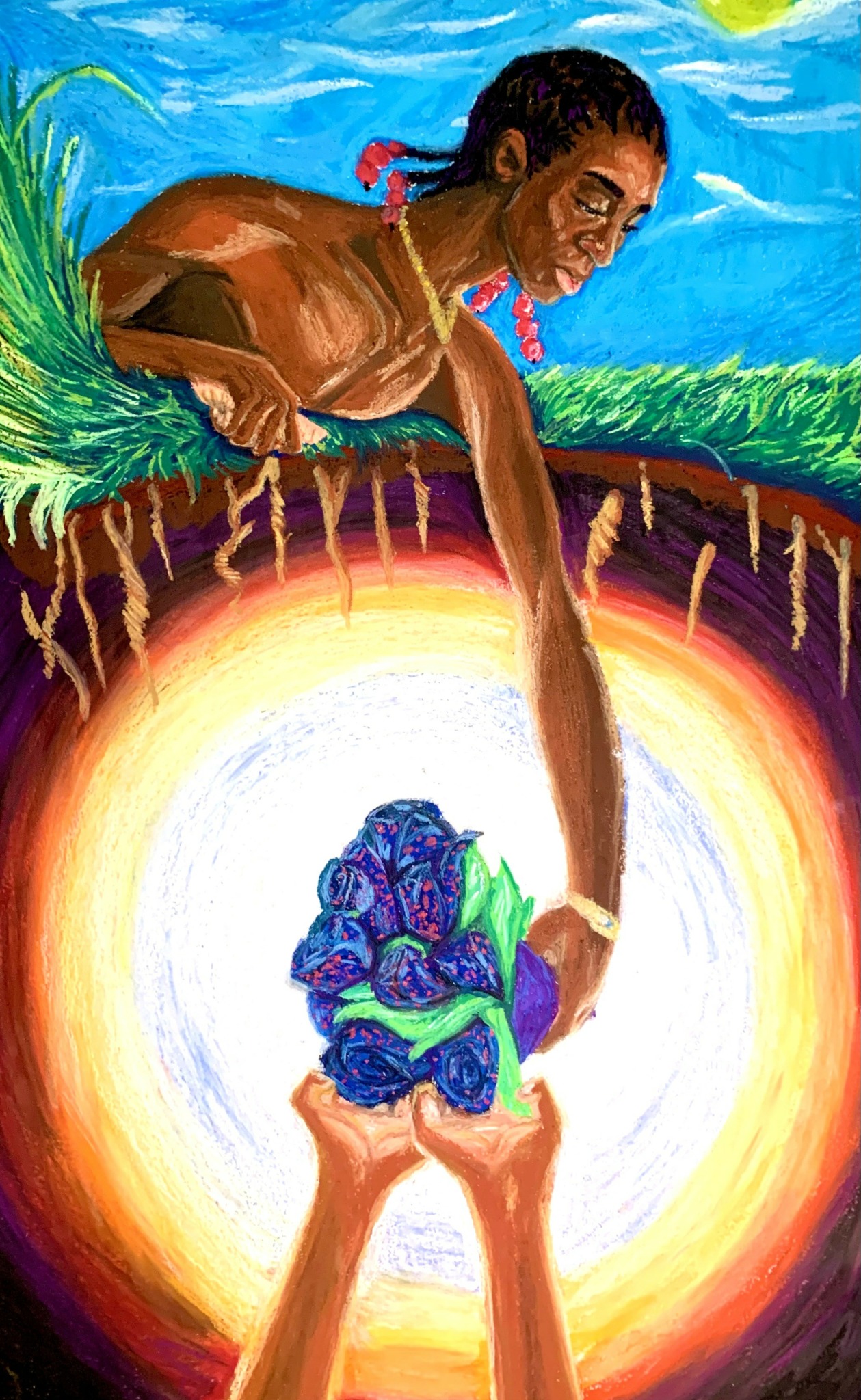
How can we best help foster a strong, supportive environment for artists and creatives?
Stop endorsing creative uses of Artificial intelligence. This world we live in has its occupational priorities backwards and a gripe against people with authentic creativity. I understand that people use A.I. as a tool but it should never be the final product of any creative excursion. Issuing A.I. for people to consume devalues the work that I and my contemporaries spend our lives working towards. The pool of information that A.I. has to pull from in order to create images, music and forms of speech is based on the work thousands of human beings did. If it can only recycle ideas, how is there any progression within that field? Especially if people don’t wish to spend the money required to hire a human professional. I understand that socioeconomic standing does affect this interaction but thats not an artist’s problem thats a system problem. The power we have as people is where we choose to spend our money.
Contact Info:
- Website: https://tylerjonesart.mypixieset.com/
- Instagram: https://www.instagram.com/sonofyogi/?hl=en
